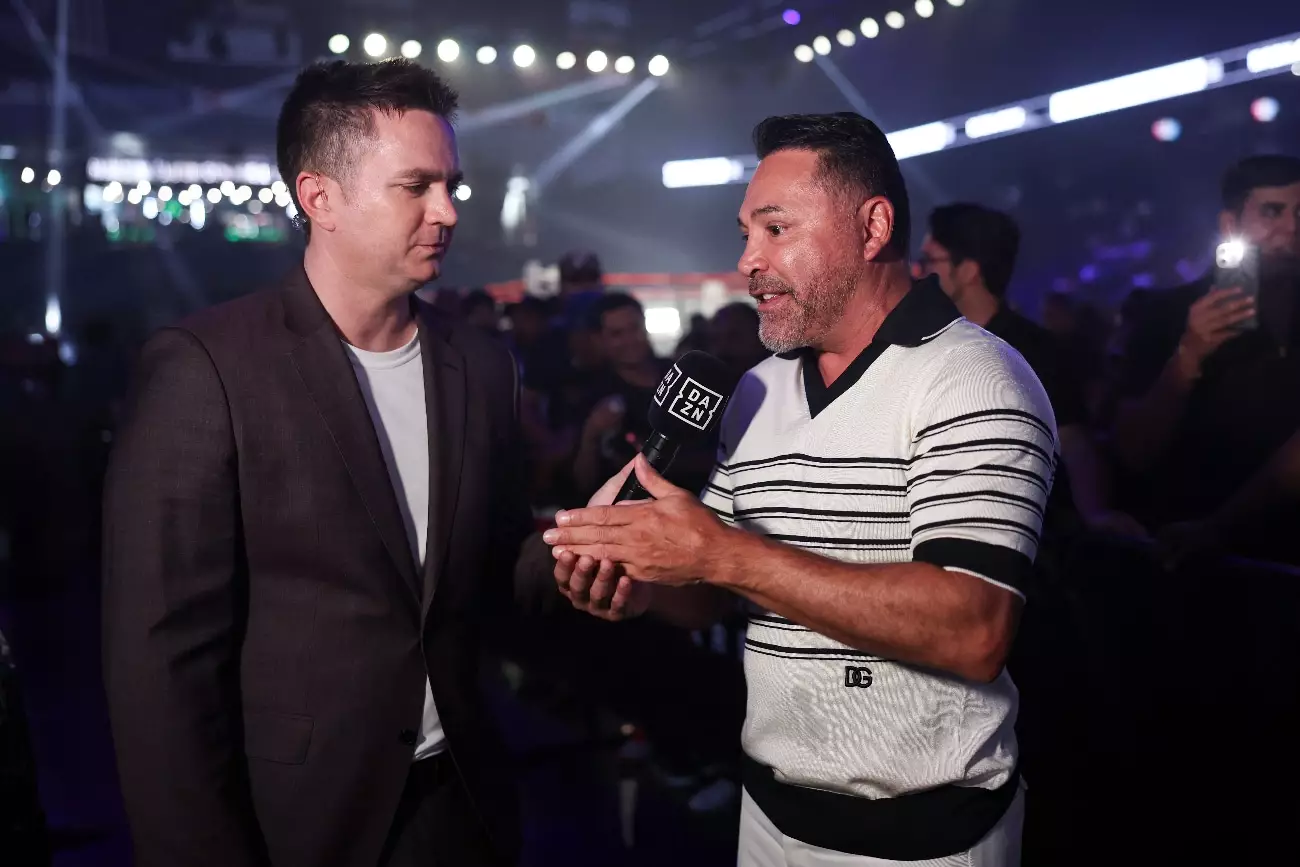In the world of professional boxing, fanfare often accompanies the announcement of prospective matchups, especially when high-profile fighters are involved. Recently, promoter Oscar De La Hoya stirred the pot with a biting critique aimed at British boxing fans who expressed enthusiasm over rumored negotiations for a showdown between Mexican champion Canelo Alvarez and British boxer Chris Eubank Jr. The proposed event at Wembley Stadium has been met with fervent anticipation, yet De La Hoya’s scathing comments ignited discussions about the validity of such a fight. This scenario raises questions about the current state and direction of boxing, particularly when considering the caliber of fighters involved.
De La Hoya’s remarks were pointed and incendiary, reflecting a far-reaching frustration not only with Eubank Jr. but also with what he perceives as a pattern of subpar matchmaking in Canelo’s career. His assertion that “UK fans don’t know s*** about boxing” underscores a dismissive attitude that exposes a rift between American and British boxing cultures. By reducing the excitement surrounding a potential match that many UK fans view as highly significant, De La Hoya effectively positions himself as a guardian of boxing’s integrity, echoing grievances long-held by boxing purists about the quality of fights being made.
At the center of De La Hoya’s argument is the notion that Eubank Jr. is an inadequate challenger for Alvarez’s prestigious titles—WBA, WBC, and WBO super middleweight belts. De La Hoya emphasizes that Eubank Jr. (with a record of 34-3, including 25 KOs) lacks the credentials necessary to compete at this level. While he recently secured a win against Kamil Szeremeta, this solitary victory after a 13-month absence from the ring does little to enhance his status as a legitimate contender.
De La Hoya’s frustration is amplified by his insistence that Alvarez should engage with top-tier opposition. His recommendations—David Benavidez, Artur Beterbiev, Dmitry Bivol, and David Morrell—spotlight the desire for matchups that challenge the elite level of competition in the sport. By contending that Eubank Jr. represents a “soft touch,” De La Hoya argues for bouts that would not only resonate with hardcore fans but also elevate the sport’s reputation as a whole.
Particularly with Benavidez, whom De La Hoya claims has been dodged by Alvarez, the discussion transitions from mere criticism to a call for action. Yes, Eubank Jr. has garnered a certain level of popular appeal, often attributed to his lineage as the son of a famed boxer, but popularity does not equate to skill or readiness for a championship bout.
In an industry where matchmaking plays a pivotal role in maintaining viewer interest and elevating fighters to stardom, De La Hoya’s commentary serves as a wake-up call. There is an ongoing need to prioritize high-stakes encounters over the allure of celebrity and marketability. By aligning the sport with fighters who possess the necessary talent and pedigree, the boxing community might restore some of the lost prestige associated with championship bouts.
As the boxing world awaits further developments regarding Alvarez’s next match, the debate surrounding the legitimacy of Eubank Jr. as a challenger continues. The essence of De La Hoya’s message resonates with many who yearn for a return to authentic competition, where the true champions of the sport are determined inside the ring against worthy adversaries.

